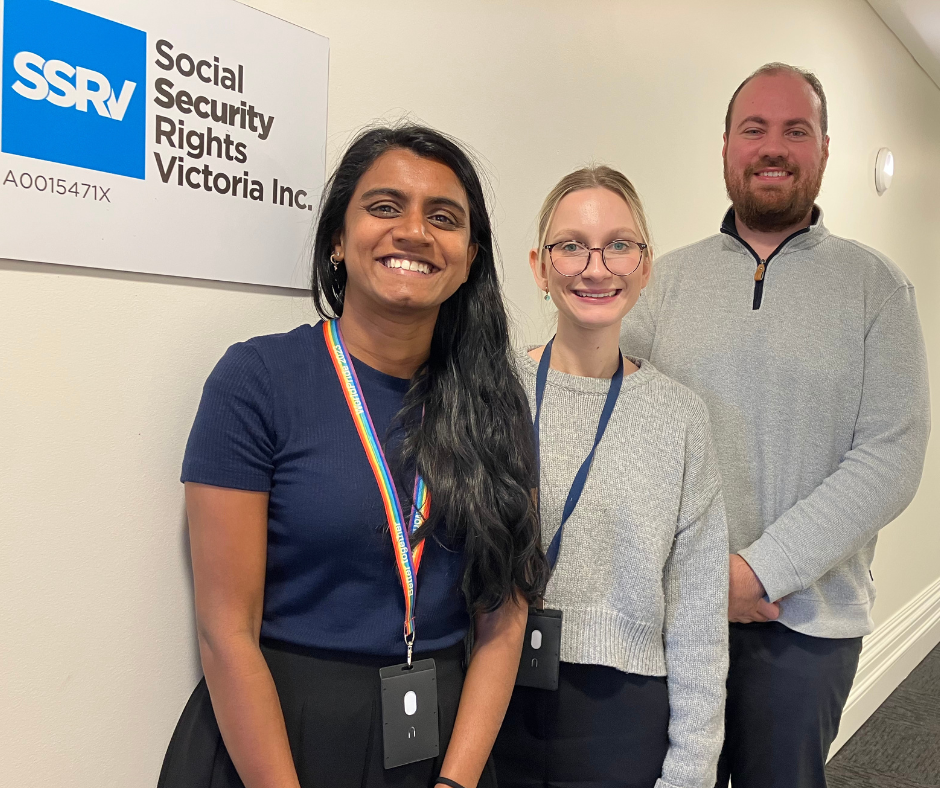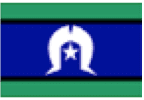Victim survivors of family violence often rely on social security payments, such as Parenting Payment, Family Tax Benefit, JobSeeker Payment and Child Care Subsidy, to develop financial independence and security, as they build a life free from violence. Yet, for victim survivors who have migrated to Australia, complexity of social security law can make accessing life changing Centrelink payments difficult.
In addition to payment specific eligibility criteria, most social security payments require someone to be an ‘Australian resident’. Residency is a complex and technical area of the social security legislation because Australian resident has a specific definition. There are also waiting periods that often apply even after someone is an Australia resident. However, there are also numerous exceptions that can apply, depending on the payment and circumstances.
At SSRV, we regularly provide secondary consultation and assistance to workers who are supporting a victim/survivor where Centrelink have rejected their claim for a Centrelink payment based on residency criteria.
What is an ‘Australian resident’?
Under the social security and family assistance legislation, someone is an Australian resident if they hold a permanent visa, are an Australian citizen, hold a protected special category visa or a specific temporary visa.
Sometimes there can be confusion about whether someone has a temporary visa or permanent visa, and it is useful to know the specific visa subclass number to help establish what type of visa it is.
Once someone receives Australian Citizenship, they can generally start accessing Centrelink payments straight away. However, some payments (Age Pension, Disability Support Pension and Parenting Payment) have an additional ’qualifying residency requirement’. This refers to someone having to live in Australia for a minimum period of time before they can access the payment.
If a person holds a permanent visa, they must generally serve a Newly Arrived Residents Waiting Period (NARWP) of between a one and four years before they can access any Centrelink payments. This is in addition to having to also having to meet the Qualifying Residency requirement. They can, however, be served concurrently, which is especially important for Parenting Payment.
For victim/survivors of family violence, residency requirements can be a barrier to leaving a relationship while on a temporary visa and consequently creates significant safety risks. It also continues to make them financially dependent on the perpetrator.
Qualifying Residency requirements for Age Pension, Disability Support Pension and Parenting Payment
The Age Pension and DSP have a 10-year qualifying residency requirement, while Parenting Payment has a 2-year qualifying residency requirement. The 10 years residency can be made up of 10 continuous years at any point in the past, or multiple periods of residency as long as one period is at least five continuous years in length. For Parenting Payment, the 2 years can be made up of continuous residency or multiple shorter periods combined.
There are exemptions from the qualifying residency requirement. For all three payments, residing in Australia and being a refugee or former refugee provides an exemption.
A further exemption for DSP is available if the applicant’s ‘Continuing Inability to Work’ arose after they met the definition of Australian resident (ie. became an Australian Citizen or permanent visa holder). There is a further exemption for applicants who were born outside of Australia and were a dependent child of an Australian citizen or permanent visa holder at the time their Continuing Inability to Work occurred.
For Parenting Payment, exemptions apply if they became a single parent after becoming an Australian resident, or they are a family member of a refugee or former refugee.
Newly Arrived Residents Waiting Period (NARWP)
Most of the time, the NARWP starts from the date a person is granted their permanent visa or the date they arrive in Australia on a permanent visa, whichever is later. In some limited circumstances, however, the time in Australia on a temporary visa can count towards the NARWP.
There are exemptions from having to serve NARWP. These include, where someone holds a specific temporary humanitarian visa, refugees or former refugee, family members of a refugee, those who have experienced a substantial change in their circumstances beyond their control after arriving in Australia, and those who became a lone parent while an Australian resident.
For victim/survivors of family violence, the most common exemptions that apply are the substantial change in circumstances and becoming a lone parent after becoming an Australian resident. Each of these exemptions, have specific eligibility criteria and so it is important to seek advice if Centrelink has rejected a claim. This is because family violence is recognised as a relevant change in circumstances and often victim/survivors are seeking payments after they have separated from the perpetrator.
International Agreements
Australia has agreements with more than 30 countries that may allow someone to access certain payments, such as DSP and Age Pension, even if they don’t meet the residency criteria outlined above. Each agreement specifies the payments covered and Centrelink have a dedicated International Service team to assist with enquiries.
New Zealanders
Australia has an agreement with New Zealand that allows New Zealand citizens to remain in Australia indefinitely on a Special Category Visa (subclass 444). However, visa subclass 444 is only a temporary visa and not a permanent visa. This means, that New Zealand citizens who arrived in Australia on this visa after 26 February 2001 will be unable to access most Centrelink payments whilst holding this visa.
If they have children, they can access Family Tax Benefit and if their child meets the Australian Resident definition, they may be able to receive Special Benefit on the child’s behalf.
New Zealanders on non-protected special category visas are eligible to receive six months of JobSeeker payment or Youth Allowance once they have lived in Australia continuously for 10 years.
Meanwhile, New Zealand citizens who were in Australia before 26 February 2001 (and therefore hold protected special category visas) are generally eligible to access all Centrelink payments.
The residency requirements often create significant confusion and many only first become aware of potential residency issues when they experience life events that trigger the need to access Centrelink payments.
Fortunately, in July 2023 the Australian government established the pathway to citizenship for NZ citizens which enables them to access Australian Citizenship without having to obtain a permanent visa first. This in turn means they can then access Centrelink payments faster as they won’t have to serve the NARWP once they have Australian Citizenship. However, they will be subject to the qualifying residency requirements for Age Pension, DSP and Parenting Payment unless an exemption applies.
When to get advice
The residency requirements, waiting periods, qualifying residency requirements and exemptions are technical and complex. As such, we recommend contacting SSRV’s Worker Helpline or Legal Assistance Line to discuss yours or your client’s circumstances, especially if you are unsure whether you meet the residency criteria or Centrelink have said they don’t think you’re eligible.
If you are supporting a victim/survivor of family violence needing to access Centrelink payments, the following information can help us provide you advice on whether they meet the residency criteria or may be eligible for an exemption from having to do so:
· the country from which they have emigrated,
· the visa subclass number they have currently and what date this visa was granted,
· whether they have children and if so, how old they are and whether they were born in Australia to at least one Australian Citizen parent,
· their experience of family violence,
· their financial circumstances in terms of access to money in bank accounts / savings accounts etc,
· if they are a single parent, what date they became one
· if they have medical conditions or a disability, what date this arose.





